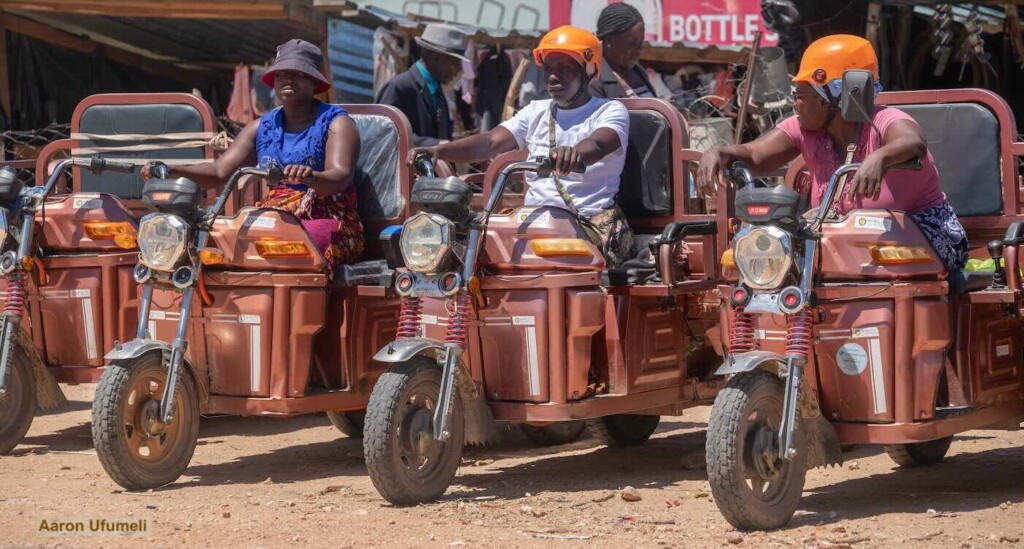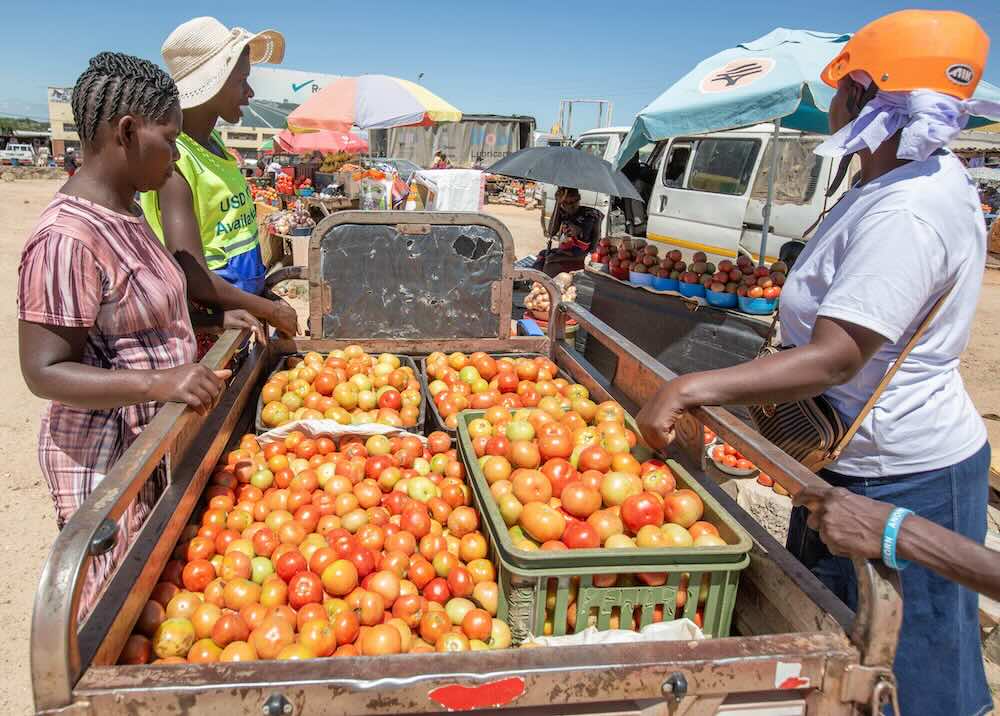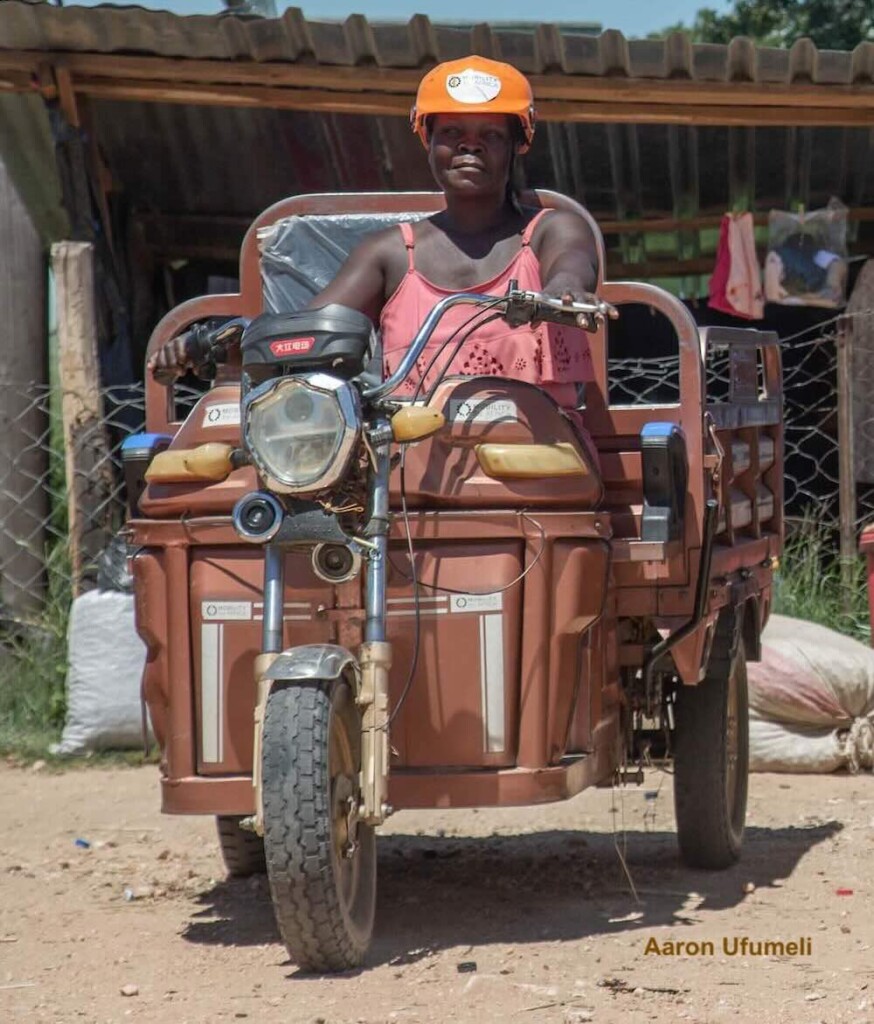Solar Tricycle Startup Helps Entrepreneurial Women Be Drivers of Change in Africa

In Zimbabwe, an Africa-born mobility startup is providing women with the catalyst they need to drive change in their community and society.
Called the Hamba, this durable electric tricycle is mobilizing a generation of working women and mothers, allowing them to perform arduous tasks with relative ease and comfort.

Manufactured in Africa and managed by the startup Mobility for Africa (MFA), a leasing program for women allowed one or several locals to lease a Hamba for $15 a month. This pilot program was a huge success, and now these electric tricycles are available to buy, on a lease-to-purchase agreement, and to rent—all on an ad-hoc basis.
It allows women to fetch water and firewood, take family members to medical facilities, or bring and buy produce at local markets, saving sometimes dozens of miles of walking each day.
“In the past transporting our produce to the market was a nightmare we would wake up at 3 am and travel a very long distance using an ox-drawn cart but now it is much easier we can reach the market on time,” a 34-year-old tomato farmer and mother of six, Hilda Takadini, told Africa News.
92% of female customers participating in the company’s pilot program noted an improvement in how safe they feel whilst traveling since they started using the Hamba compared with walking, and some have offered their services as couriers and drivers to other community members, sparking the spirit of entrepreneurialism.

Among the women whose stories were changed by the appearance of the Hamba was Anna Bhobho, a 31-year-old housewife from rural Zimbabwe who was excluded from economic life.
MORE ELECTRIC VEHICLES IN AFRICA: Female Entrepreneur Set to Revolutionize Transportation for All of Africa, After Transforming her Native Ghana
Now, she’s the major bread winner in her house, and Takadini relies on her to bring tomatoes to market before they spoil.
“Even my husband and in-laws have more respect for me now. No one used to listen to me, but now I have a seat when important decisions are being made,” the mother of three told Africa News.
MORE ELECTRIC VEHICLES IN AFRICA: How Fog Nets Are Making Water Abundant in Arid Africa – And May Be Useful in California
70% of the Hambas are reserved for women, and 300 are estimated to currently own or rent one. The solar-powered trikes have just one moving part in the motor, making them easy to maintain and fix. Batteries can be exchanged when depleted at a cost of $5.00 at one of Infraco Africa’s solar power stations, a partner with MFA on the initiative.
Each Hamba can carry 1,000 pounds or so of cargo, and have a top speed of 37 mph (you couldn’t go much faster on a rural Zimbabwe road anyway).
WATCH the story below from Africa News…
SHARE This Brilliant Africa-Made Innovation That’s Bringing Housewives Into The 21st Century…
>read more at © GoodNews
Views: 0